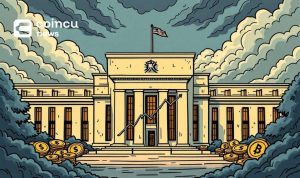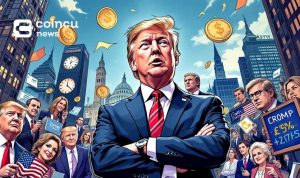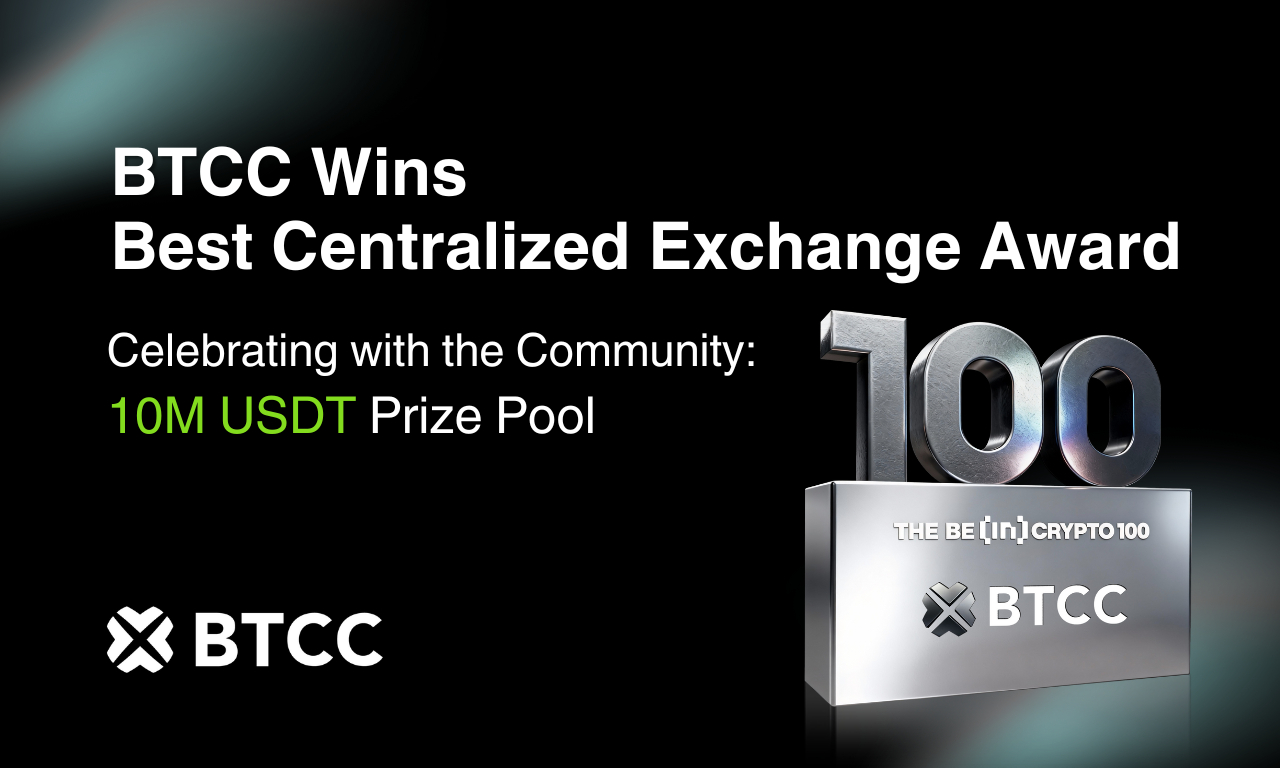For centuries, gold glittered as the ultimate store of value—tangible, timeless, a trusted hedge against fiscal chaos. Then President Nixon delinked the dollar from gold and forever changed the global monetary system—or did he?
Gold’s value hasn’t diminished by any metric you care to mention. Last year, it overtook the euro to become the world’s second most-held reserve asset (USD is still #1, natch). Gold prices have also risen by over 40% since the start of 2024, with Goldman Sachs expecting the surge to continue amid central bank demand.
But gold isn’t the only asset that’s provably scarce, fungible, and durable, qualities that make it an appealing store of value. There’s also bitcoin (BTC), the leading decentralized digital currency. Indeed, bitcoin is considered gold’s digital twin by many ardent supporters and investors, a demographic that now includes institutions as influential as… the U.S. government.
For all their similarities, gold and bitcoin are locked in competition for investor attention (and dollars). While some believe BTC will eventually ‘eat the gold market’, others remain firmly in the gold bug camp. So, the question looms large: which commodity reigns supreme as the go-to store of value?
Tangible vs. Intangible
Perhaps the most obvious distinction between gold and bitcoin is the former’s physical properties: gold is something you can hold, stack, bury, and fashion into other items, whether it’s a necklace, throne, or spacecraft component. Bitcoin isn’t imaginary like some detractors claim but you can’t ‘touch’ it in the same way.
While Bitcoin sprung into being in 2009, gold has been physically mined from the earth over millennia, cherished by Hollywood royalty and, well, actual royalty through the ages. Today, gold’s market cap is approaching $19.5 trillion, making it more valuable than Apple, Microsoft, NVIDIA, and Amazon combined.
But Bitcoin’s no slouch either. A decentralized digital currency capped at 21 million coins and stored on a distributed ledger, it’s gone from being derided as an internet fad to a global asset with a market cap of $1.7 trillion – all within 16 years. Late last year, BTC overtook another precious metal, silver, a day skeptics thought would never come. While silver has since regained its place, many believe it’s a matter of time before Bitcoin eclipses it once again.
Although bitcoin’s market capitalization makes it a minnow to gold’s Great White, its meteoric rise has made many wonder whether it will, in time, unseat the precious metal. You can certainly make a compelling case.
The heft of gold may be an advantage in some regards, but it can also be viewed as a weakness. After all, transporting gold bars across borders entails a logistical nightmare complete with armed guards and armored trucks. To transport bitty, all you need is access to the internet.
Divisibility is another win for BTC: split a coin into satoshis (100 millionths) with a click; try portioning out a gold nugget without a meltdown. There’s no denying gold’s universal shine but in terms of convenience, we are comparing email to post here. As the digitally-native commodity, bitcoin is the obvious winner.
Scarcity and Supply
The value of gold and bitcoin is closely tied to their inherent scarcity: no one can suddenly appear and start inflating their supply, an event that would disrupt their stock-to-flow ratio and dent their value.
However, an argument can be made that Bitcoin has the upper hand even in this regard since its 21 million supply cap is verifiable by anyone running a node. No central bank can inflate it away, unlike fiat – or gold, if a motherlode were to be discovered, say, on another planet.
Of course, there is a strong counter-argument to this position. Which is that finding a quantity of gold necessary to seriously affect the stock-to-flow ratio (on Earth or elsewhere) is less likely to happen than Bitcoin’s hard cap being increased. Which is theoretically possible.
Global Monetary Alternatives
As mentioned earlier, gold’s performance in recent years has been impressive. But because of its history as an investable asset, its percentage gains – when viewed over time – are pocket change compared to bitcoin’s. After all, in the space of 16 years, the latter went from being worthless ‘internet money’ to hitting a value of over $100,000 per coin.
While bitcoin’s historically volatile price swings have scared many would-be investors away, BlackRock recently described it as a “risk-off” global monetary alternative, likening it to gold rather than risk-on assets like stocks, commodities, and high-yield bonds. If even the world’s largest asset manager is dubbing Bitcoin a “global monetary alternative,” its future seems rather bright.
Indeed, countries are already adding Bitcoin to their balance sheets, cognisant of its historic performance and gold-like properties. El Salvador, for instance, now holds 6,088 BTC, valued at approximately $558 million at today’s prices. In the U.S., President Trump has flipped from crypto skeptic to cheerleader, pitching a “strategic crypto reserve” composed of bitcoin and other coins. If such an event comes to pass, expect other nations to follow suit.
The Bitcoin love affair isn’t just with governments but with institutions. Last year’s BTC spot ETFs sucked in nearly $150 billion, dwarfing gold’s first-year inflows by 10x. It’s not unreasonable to imagine friendly regulations – like Trump’s push – turbocharging the crypto’s climb yet further.
VALR’s Bitcoin vs. Gold Showdown
Recently, South African cryptocurrency exchange VALR has stirred the bitcoin vs gold pot by running a trading competition involving both assets.
Set to run from February 28 to March 27, the platform’s “Great Re-Balancing Trading Competition” compels investors to trade either BTC or Tether Gold (XAUT), a digital asset fully backed by physical gold reserves, on its spot or futures markets to earn a shot at $25,000 worth of rewards. Here’s the twist: it’s about trade count, not volume – so hustle beats whale moves. Minimum trades are $20 on spot and $200 on futures.
Curious? Hit up VALR’s blog for the full scoop.
Claiming the Store of Value Crown
So, what’s the best store of value? Gold has an incredible pedigree – thousands of years as humanity’s haven, a near $20 trillion market cap, and practical utility in fields like electronics and industry. Bitcoin, by contrast, is leaner, digitally native, and rocket-propelled by unprecedented demand.
At this juncture, it seems that digital gold is on a fast track that its physical counterpart can’t match. While volatility remains a hurdle, warming regulations and the possibility of countries ‘stacking sats’ means its value is likely to keep climbing.
That being said, gold is going nowhere – quite the contrary. When the story of the 21st century is written, expect gold and bitcoin to figure prominently.
| Disclaimer: The text above is an advertorial article that is not part of Coincu.com editorial content. |























